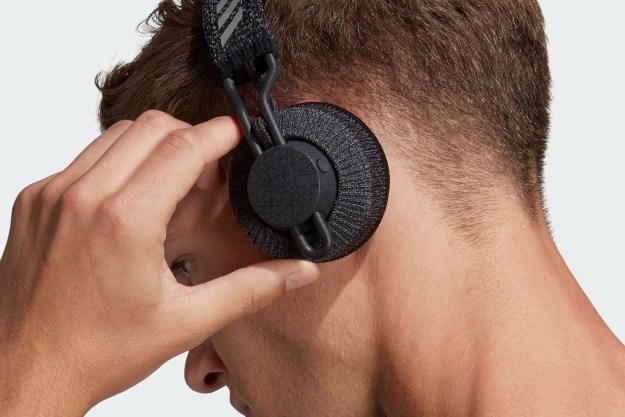Owned and operated by the family of the legendary musician Bob Marley, House of Marley has long balanced sound quality with sustainability when it comes to its products, and its new Smile Jamaica Wireless headphones are no exception.
Hoping to underscore the importance of sustainability in a headphone industry driven largely by plastic, metal, and other not-so-eco-friendly materials, House of Marley claims that its Smile Jamaica in-ear
Made with “regrind” recycled silicone, recycled aluminum alloy, and Forest Stewardship Council-certified woods, the Smile Jamaica
Interestingly, the Smile is one of the first products we’ve seen from the brand specifically designed for working out.
“Our goal was to build off the popularity of our existing Smile Jamaica headphones in order to create an in-ear Bluetooth headphone option without the need for a bulky housing” said Josh Poulsen, director of product development. “The Smile Jamaica Wireless’ slim, soft neckband is meant for all-day listening without sacrificing performance and sound.”
Weighing in at just 26 grams, the headphones are also designed to be sweat-resistant, so they should hold up for just about any scenario, including your workout grind.
A number of House of Marley products are crafted from sustainable materials. For example, the company uses non-toxic silicone; its own signature blend of “Rewind” up-cycled fabrics made from organic cotton, reclaimed hemp, and recycled plastic bottles; and 100 percent recyclable packaging. The company even put out a great turntable, the Stir It Up, using sustainable materials like bamboo and recycled plastic.
To help further its mission of sustainability, House of Marley has partnered with One Tree Planted, a nonprofit dedicated to worldwide reforestation efforts worldwide. Thanks to this new collaboration, every House of Marley product sold will aid in the company’s goal of planting 75,000 trees within the next year.
If you want to be part of this campaign — or you just want some cool headphones — the Smile Jamaica Wireless are available for purchase at House of Marley’s website for $60. They are also available at various retail locations across the U.S.
Editors' Recommendations
- Niche Canadian company takes on Sony with new wireless earbuds and headphones
- House of Marley Redemption ANC 2 now available
- House of Marley’s new headphones look to provide ‘powerful sound with a purpose’
- House of Marley’s Champion: Sustainable, affordable true wireless earbuds
- House of Marley debuts $250 Exodus ANC, its first wireless ANC headphones


